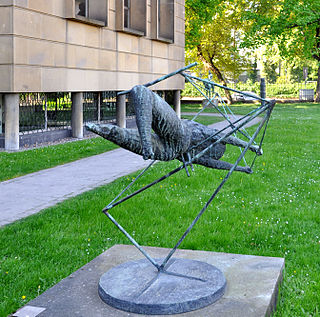A Quote by Margaret Fuller
If any individual live too much in relations, so that he becomes a stranger to the resources of his own nature, he falls, after a while, into a distraction, or imbecility, from which he can only be cured by a time of isolation, which gives the renovating fountains time to rise up.
Related Quotes
With only one life to live we can't afford to live it only for itself. Somehow we must each for himself, find the way in which we can make our individual lives fit into the pattern of all the lives which surround it. We must establish our own relationships to the whole. And each must do it in his own way, using his own talents, relying on his own integrity and strength, climbing his own road to his own summit.
All men, and all created nature, have been at work, from the beginning of time to this day, to produce the circumstances which now influence our actions. AS soon as an act has been performed, it becomes independent of the individual performing it, and forthwith gives birth to some other act, which last gives birth to still another, and so they continue, and will continue, until the law of cause and effect shall cease to operate.
Reason cannot desire for man any condition other than that in which not only every individual enjoys the most absolute, unbounded freedom to develop himself out of himself, in true individuality, but in which physical nature, as well, need receive no other shaping by human hands than that which is given to her voluntarily by each individual, according to the measure of his wants and his inclinations, restricted only by the limits of his energy and his rights.
Individuality in universality is the plan of creation. Each cell has its part in bringing about consciousness. Man is individual and at the same time universal. It is while realising our individual nature that we realise even our national and universal nature. Each is an infinite circle whose centre is everywhere and circumference nowhere. By practice one can feel universal Selfhood which is the essence of Hinduism. He who sees in every being his own Self is a Pandita (sage).
To the mind which looks not to general results in the economy of Nature, the earth may seem to present a scene of perpetual warfare, and incessant carnage: but the more enlarged view, while it regards individuals in their conjoint relations to the general benefit of their own species, and that of other species with which they are associated in the great family of Nature, resolves each apparent case of individual evil, into an example of subserviency to universal good.
It is possible that an individual may be successful, largely because he conserves all his powers for individual achievement and does not put any of his energy into the training which will give him the ability to act with others. The individual acts promptly, and we are dazzled by his success while only dimly conscious of the inadequacy of his code.
The life we live today - the environment in which we live - is not one of security - it's one of doubt, one of suspicion, one of absolute tension - we're not a pastoral society any more. We feel around us the pressure of man's inadequacy to control his own development. The time when the great forces of nature, the stones and the rocks, were the gods, is gone.
The only thing that really matters now is whether man can climb up to a higher moral level, to a higher plane of consciousness, in order to be equal to the superhuman powers which the fallen angels have played into his hands. But he can make no progress until he becomes very much better acquainted with his own nature.
It is natural to admire and revere really great men. They hallow the nation to which they belong, and lift up not only all who live in their time, but those who live after them. Their great example becomes the common heritage of their race; and their great deeds and great thoughts are the most glorious legacies of mankind.



































